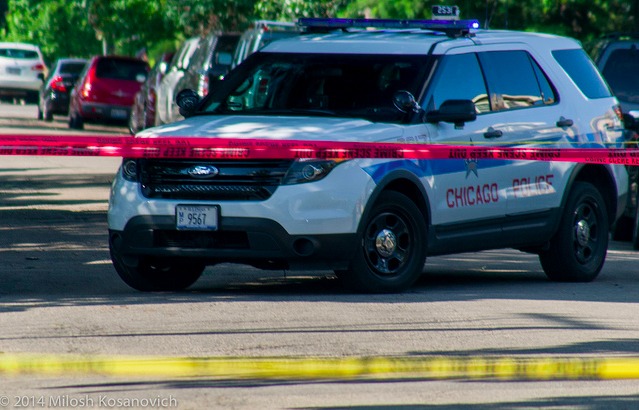Police Body-Worn Camera Program Is Expanding To 6 New Districts
By Kate Shepherd in News on Dec 23, 2015 6:12PM
Six additional Chicago police districts will be joining the department's expanded body-worn camera program, at a time when the police department is under intense scrutiny over how it documents police interactions with the public.
Shakespeare (14th), Austin (15th), Wentworth (2nd), Deering (9th), Ogden (10th), South Chicago (4th) and Gresham (6th) will all be a part of the program starting in the early spring of 2016, Mayor Rahm Emanuel and Interim Police Superintendent John Escalante announced in a statement.
These districts were chosen in a "thorough review of patrol activity, crime patterns, calls for service and geography." The program, which some critics of the police department hope will increase police accountability, is only currently underway in the Shakespeare District and has been capturing data from 30 cameras on the afternoon patrol shift. More than 850 hours of footage have been recorded so far.
"Increasing public safety, improving transparency and building trust in our police department are three key priorities, and the expansion of the body camera program is a significant step forward for each," Emanuel said in the statement. "While body cameras are just one tool and not the only reform needed, this technology will soon be a regular part of every interaction - routine or extraordinary - between residents and police officers in more communities across our city."
Uniformed officers and supervisors on all watches will be wearing the next-gen cameras which will be able to record up to 72 hours in high definition on a single charge.
"In addition to aiding criminal investigations, body cameras add a level of accountability and protection for both police officers and citizens," Escalante said in the statement. "In the first phase of our camera program, we have already seen a more than 20 percent reduction in complaints against police merely by having the presence of a camera."
The University of Illinois at Chicago's Center for Research in Law and Justice will be evaluating and observing how the program is implemented and the impact it has on the perceptions and behaviors of both police officers and community members.
